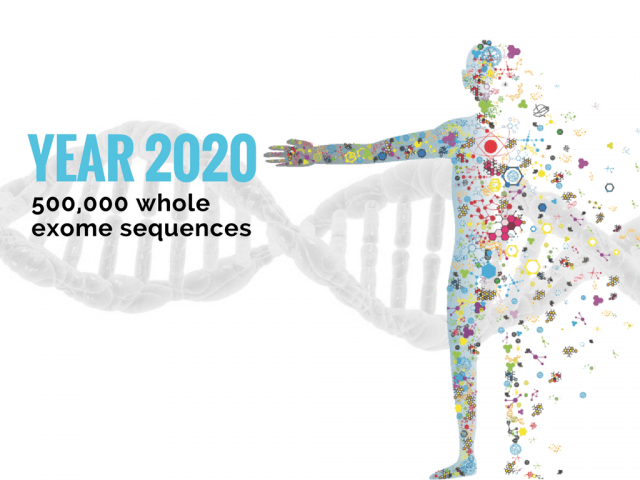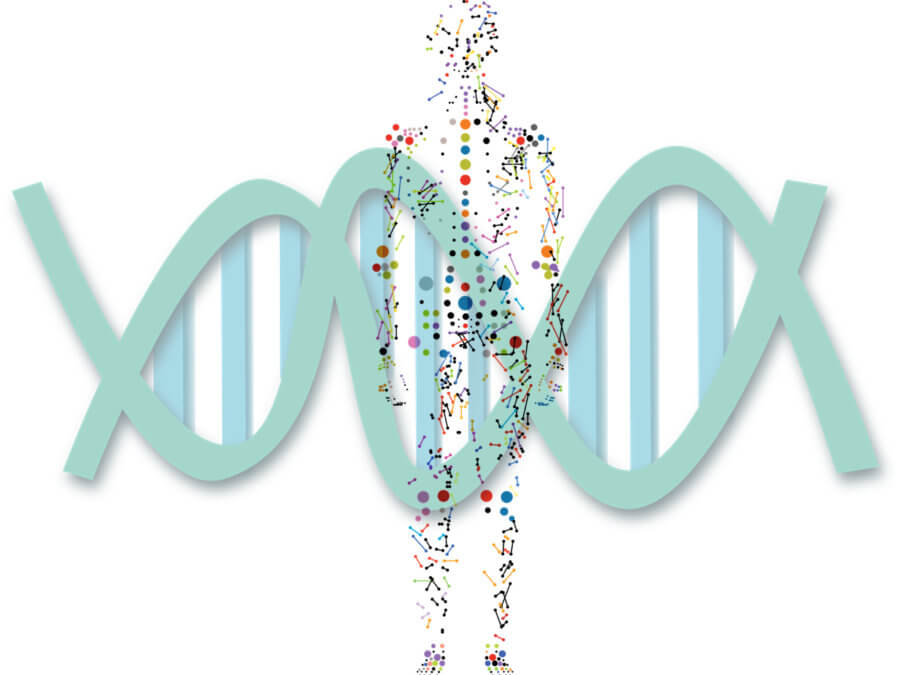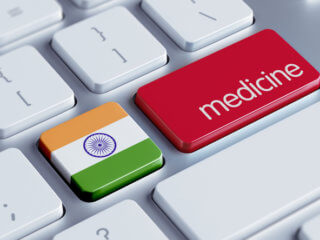4 Key market segments of genomics in digital health industry
Genomics: A brief overview
The Human genome consists of 3.02 billion of base pairs, and the coding proteins of the sequence account only for 1.2% of the entire genome. Personal genomics is a section of healthcare related to sequencing and analysis of the human genome. Personal medicine is a fast developing field which is aimed at acquiring information provided by genomics when choosing the medical procedures necessary for a particular patient. Here are 4 key market segments of genomics in digital health industry:
1. Genomics and Biotechnology companies
Direct -to- Consumer companies (DTC) such as 23andMe, Ancestry, Veritas Genetics, Human Longevity I.N.C. accumulate genomics data for providing health, wellness reports. The technology is Next Generation Sequencing (NGS) exome or whole genome sequencing.
Digital healthcare company 23andMe with CEO Anne Wojcicki with plans to expand in the consumer market for genetic testing and making a new drug discovery has recently raised $250 million.
Veritas Genetics has been hailed as the first company to be able to sequence, analyze and interpret whole human genome data for less than $1,000, to properly feed the marketing machines as well.
Molecular diagnostic companies such as Myriad Genetics, Pathway Genomics, PierianDX, Color Genome, Quest Diagnostics, Rosetta Genomics, Verily Life Science and Novogene are also actively collecting genomics data from different groups of patients. Biotechnology companies not only participate in the production of diagnostic tests but also produce technological products such as Qiagen, Thermo Fisher Scientific, BGI and Illumina. Qiagen CEO Peer Schatz recently launched a portfolio of clinical next-generation sequencing panels based on a proprietary digital barcoding technology.
Qiagen is aiming to work with pharma partners to market companion diagnostic tests (CDx) for identification of patients with the best chance of successful therapy. The key technologies are RNA or DNA NGS, PCR (Polymerase Chain Reaction).
Illumina is a contributor on the technological side of the genome sequencing market. Nearly three-quarters of all genomics companies provide tools (both physical and in the cloud) to pharmaceutical companies and academic research institutions. Mostly diagnostics tests are paid by insurance companies.
2. Pharmaceutical companies
Pharmaceutical Companies are active in multiple segments and can also buy data from all types of companies. The consortium of pharmaceutical companies led by Regeneron Pharmaceuticals will provide NGS of the genes of 500,000 volunteers from the UK for the next two years. Regeneron will handle the sequencing, and AbbVie, Alnylam Pharmaceuticals, AstraZeneca, Biogen, and Pfizer will all contribute $10 million each to create future pharmacogenomics data.

Image courtesy of Frontlinegenomics
In 2016 Amgen bought the Reykjavík-based deCODE founded in 1996 with genetics data from several patients group. In 2015 23andMe announced that it would share anonymized data on 650,000 of its customers with Pfizer, as well as sequence the full genomes of 3,000 people with Parkinson’s in a bid to develop a drug with Genentech.
| Recommended for you | |
| Genome sequencing at home | |
| Preventive medicine in the omics era | |
| Huawei precision medicine cloud: A revolutionary step in the field of genomics |
3. Hospitals and health insurance companies
Hospitals and health insurance companies provide genomics testing for patients ordered by physicians. NGS service can be done on-site at the hospital or at service providers.
For example, GNS healthcare is a privately held data analytics company and Global Genomics Group (10,000 genomes data) which is developing life-changing diagnostics and therapeutics for cardiovascular disease (CAD) by using GNS’s Causal Machine Learning software.
In May 2017, Rosetta Genomics announced its partnership with Israel’s Meir Medical Center to develop a microRNA-based test to identify non-small cell lung cancer patients who would benefit from a specific class of immune-therapeutics. Cloud-based technologies tools help facilitate data integration and sharing into clinical workflows.
4. Bioinformatics, Artificial Intelligence and Blockchain
Bioinformatics tools for interpretation of genomics data and Artificial Intelligence (AI) with Machine Learnings (ML) are becoming increasingly relevant for healthcare providers and consumers. Furthermore, almost every company in the field is developing their tools.
Qiagen CLC bio, Ingenuity, and Biobase bioinformatics product lines combine powerful analytics and visualizations with the largest curated repository of biological and clinical findings.
Another example Human Longevity, Inc. (HLI) which was founded by leaders in genomics with the ultimate goal of giving everyone access to the power of data-driven health intelligence combines state-of-the-art DNA sequencing and expert analysis with machine learning, to help change medicine to a more data-driven science. In October 2016, IBM Watson Health and Quest Diagnostics launched IBM Watson for Genomics.
A service that combines Watson’s AI capabilities with genomics tumour sequencing to determine the best course of treatment for individual patients. IBM Watson also has gone into partnership with Pfizer with the intention of accelerating drug discovery in immuno-oncology. Furthermore, the full value of human genomes remains a relative mystery for all service providers whose creation or/ adoption of new external data/algorithm is critical for the field.
Another fascinating and fast developing field is related to the storage of Big Data and the application of Blockchain technology.
Many companies proposed utilization of the Blockchain technology for secure decentralized storage and sharing of the patient data with biopharmaceutical companies.
Some of them raised or are going to raise substantial capitals through ICO (Initial Coin Offer, sort of crowdfunding). Examples are Luna DNA that position itself as first “genomics and medical research database powered by the blockchain”, Gene blockchain, MedicalChain, Patientory, and Medibond to name a few. All of them aim to create a platform to securely store and share digital health records. However, the overall success of this controversial field is dependent on the blockchain adoption by governments, financial and health institutions.
Market prognosis for the next five years
According to Global Market Insights, Inc., digital health market in the area of genomics is poised to surpass USD 45 billion by 2024. Bioinformatics is a technology which addresses the complexity of the underlying genomics data for common human diseases. However, incorporation of prior biological knowledge into computational methods for data mining is very important for AI and data-driven healthcare.
AI is the most promising method and company such as Human Longevity, INC already proved their software could recognize faces based on genomics data. The perfect blend of existing digital health technologies and genomics will have most perceived and disruptive potential in the next five years.
Image credit: www.pixabay.com

















